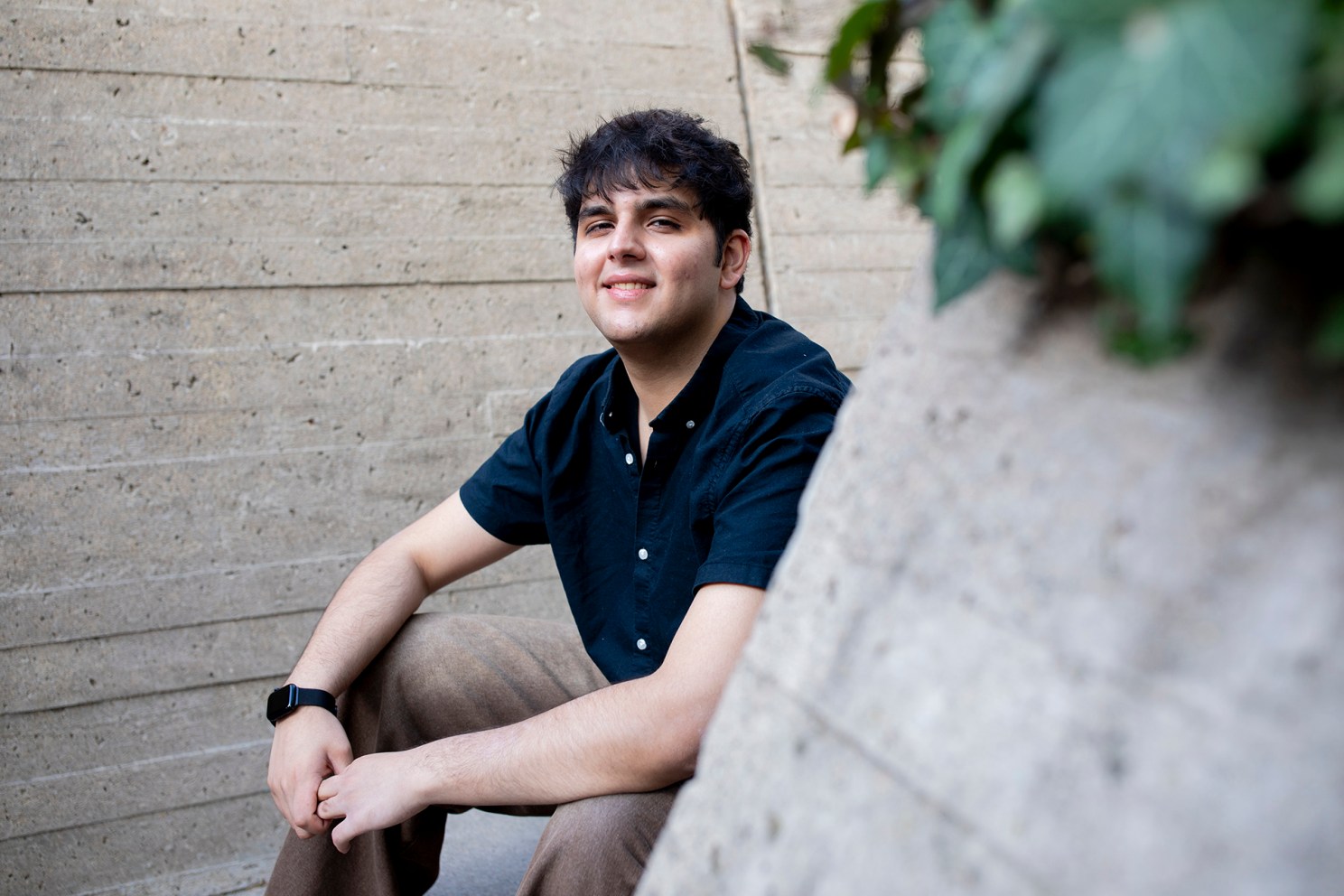‘Like we’re reaching a new period of human history’

Veasey Conway/Harvard Staff Photographer
Fascination with artificial intelligence pulls Muqtader Omari back to his scholarly first love: Science
Part of the Commencement 2025 series
A collection of features and profiles covering Harvard University’s 374th Commencement.
Growing up in Afghanistan, Muqtader Omari ’25 loved astrophysics, but the political climate of his country led him on a couple of detours — working as a writer and studying government — before he ultimately returned to his scientific roots to focus on artificial intelligence.
After he graduated from high school in Kabul, Omari launched a nonprofit called Talk Science, which aimed to educate young people on social media platforms. But he soon found education had political dimensions he hadn’t anticipated.
“I started noticing all these limitations that exist and was interested in learning more about where these came from,” said Omari, pointing to the barriers faced by Afghan girls seeking an education under Taliban rule. His curiosity led him to write for a newspaper in Kabul, and eventually to pursue higher education in the U.S.
At Harvard, where he is one of nearly 6,800 international students across the University, Omari opted to concentrate in government and in computer science. Throughout his undergraduate years, he sought to learn more about his birth country as the Taliban retook control of Afghanistan’s government. In 2023, the Adams House resident met lecturer in the Modern Middle East Mohammad Sagha through a course dedicated to regional order, U.S. wars, and the politics of Iraq and Afghanistan.
“What makes Muqtader unique is that while he has a compelling personal story, he never relied on that to solely inform his worldview,” said Sagha. “He’s intellectually rigorous and tries to objectively study and understand Afghanistan, its neighboring environment, U.S. foreign policy, and other factors through a balanced scholarly lens — that is rare to find.”
Sagha added: “He is very passionate about what is happening in his country and is eager to make a difference.”
“I preplanned a lot of my life in high school, and none of it worked out. I’ll let myself decide in the moment. I just hope I’m happy and I’m learning.”
Omari’s early intellectual leanings may have been with Afghanistan, but he was determined to push himself to meet students from all walks of life. About filling out his first-year roommate survey, Omari said, “I didn’t want to be with other international or Middle Eastern students. I wanted it to be as opposing to who I am as possible, because that’s what I thought Harvard was all about.”
He joined the Institute of Politics as a study group leader and the John F. Kennedy Jr. Forum Committee, where he assisted in the production of nonpartisan dialogues on politics, public service, and other affairs. But halfway through his four years, Omari realized that politics wasn’t for him. Missing the rigidity that science offered, he became fascinated with artificial intelligence.
“It’s mind-boggling to me,” he said. “It feels like we’re reaching a new period of human history.”
Omari’s plans after Harvard are unclear. “I preplanned a lot of my life in high school, and none of it worked out,” he said. “I’ll let myself decide in the moment. I just hope I’m happy and I’m learning.”
Eventually, he hopes to return to Afghanistan, although the political situation is too unstable now, he said. His family, including younger sisters, moved to the U.K. after the Taliban takeover. “I could never feel like I’m at home anywhere else but Kabul,” he said.
Sagha is confident Omari will be successful wherever he lands. “He, alongside other gifted Afghan diaspora, can play a positive role in representing their country and enriching our own society and knowledge here in the United States.”




